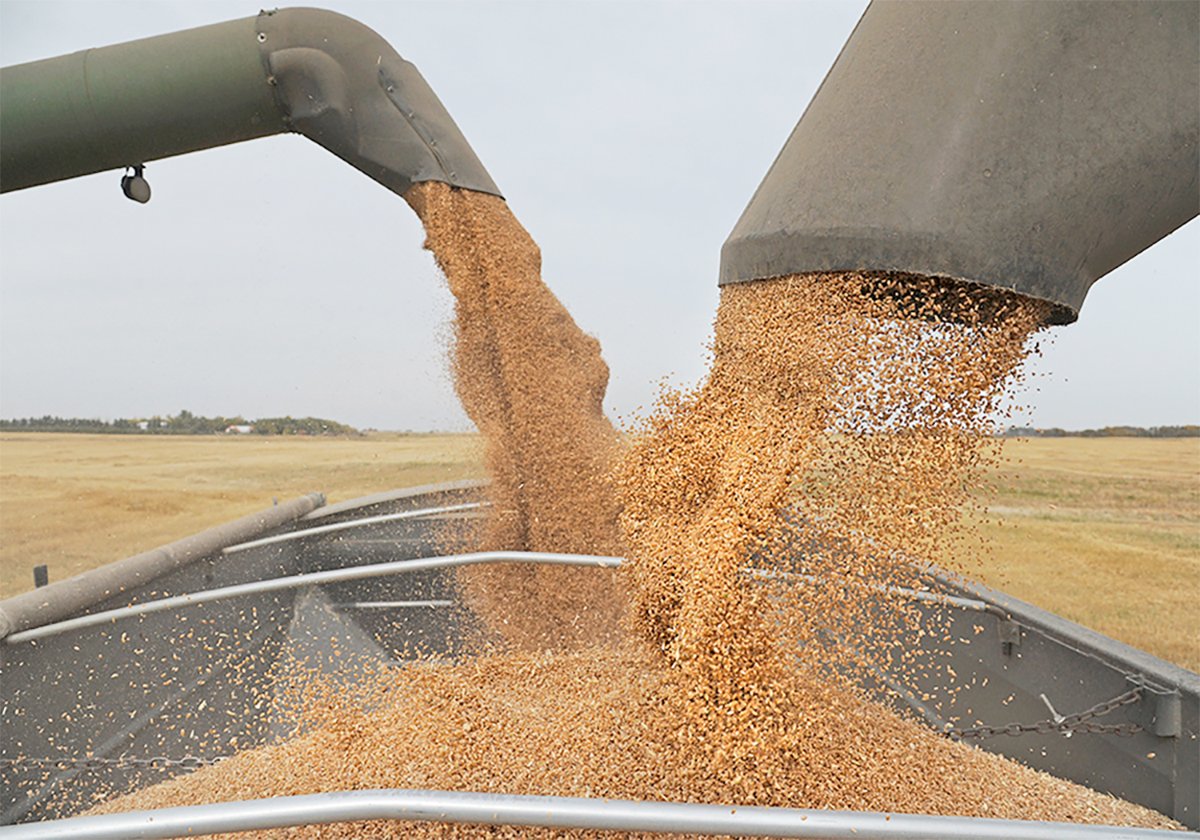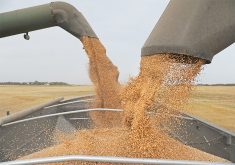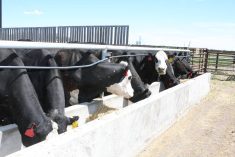Irrigation funds
It is depressing to learn from the July 28 Producer that another irrigation project is being promoted in Saskatchewan, providing sufficient funding support comes from the government of Saskatchewan.
Funding for the feasibility study came in the form of a $360,000 grant from the Canada/Saskatchewan National Water Supply Expansion program and a mandatory local component from five RMs in the proposed project area. Much of the promotion of such projects comes from businesses or companies that are not farmers but hope to increase their profits.
Read Also

Agriculture productivity can be increased with little or no cost
There’s a way to enhance agricultural productivity with little or no cost. It doesn’t even require a bunch of legislative changes.
The Alberta Irrigation Projects Association and the government of Alberta repeatedly promote irrigation by stating that only five percent of Alberta’s arable land is irrigated but produces 20 percent of Alberta’s gross agricultural production.
That statement does not reveal the fact that a very important portion of the gross agricultural production of the irrigated areas comes from cattle reared in non-irrigated regions of Alberta and are sold to feedlots in irrigated areas for finishing, primarily with grain produced in non-irrigated parts of Alberta….
Alberta promoters of the Meridian Dam on the South Saskatchewan River at the Alberta/Saskatchewan boundary succeeded in having Saskatchewan pay 25 percent of the $100,000 cost of a feasibility (study)….
I doubt that the governments of Saskatchewan, provincial and municipal, can afford the funding support for irrigation that will be needed for it to be successful and sustainable.
– C. F. Bentley,
Edmonton, Alta.
Thanks, Wayne
I would like to publicly thank MP Wayne Easter for telling it like it is. He spared nothing and no one for the sake of truth and honesty, even his own government. I applaud him for it and so should every farmer in Canada.
During the past decade, many of us have probably voiced those same concerns and facts but have never been listened to by politicians on the government side of the House.
As grain producers use many modern farming methods, we have increased our productivity many times over, yet net profit or take home pay is much lower today than it was 60 years ago when we farmed with horses.
Due to modern farming methods and practices, we have become huge users of goods and services that we must have to produce our crops.
These goods and services that we cannot farm without are produced and controlled by a handful of transnational ag corporations.
Our input costs on average have increased tenfold, (and) one as high as 2,000 percent – fuel, while the price we receive for our grain isn’t even at the level it was during the mid-1970s.
From an economic point of view, we are controlled and dominated by the ag corporations and serve as little more than economic slaves for them.
– George E. Hickie,
Waldron, Sask.
About subsidies
Regarding the front page article “Canada’s subsidy frugality praised” in the July 28 issue of the Western Producer:
It certainly is nice that our government gets praise for its stance on subsidy reduction from some foreign organization. The total actual fact to this is even bigger than indicated.
The governments have certainly reduced subsidization in agriculture in Canada. They did it by downloading subsidization. The farmers are subsidizing themselves by taking off-farm jobs either themselves or through their spouses’ jobs.
Subsidization is subsidization, no matter how we paint it. Farmers should not have to subsidize cheap food policies nor sell their product below cost of production.
– Delwyn J. J. Jansen,
Leroy, Sask.
Take control
Re: “Side-step, two-step carries on” by Wendy Holm, WP, July 14.
I read the subject article with a great deal of interest and satisfaction. As always, she makes a lot of sense and hits the nail on the head, so to speak. …
My stance on the political spectrum has absolutely no leftist leanings. If anything, I am far right, yet I have to admit readily that businesses in our agricultural and other resource sectors built up a strong monopoly position.
Our politicians allowed, in fact helped this matter along, yet daily they try to assure the population that it is market forces at work and that in a free market economy they should not or could not interfere. Pure nonsense.
Anyone who believes that must also believe in fairies. What I find appalling in this affair is that most people accept this condition. Is it because it is easier to swallow than to spit it out and do something about it? Or is it because the average guy knows little about economics and how they work? …
When two packers control 65 percent of the fed cattle slaughter in the country, they don’t even need to discuss their bidding on the phone; they could just sit on their hands for a few days and the price will come down dramatically to their level.
I see but two solutions to help the situation. Either establish an independent agency that establishes a base price for commodities and monitors it – strange words for a free enterpriser, but we are far beyond that now.
Just look at all the manipulated large businesses that went down the tube in the U.S. and all the primary producers that are manipulated into oblivion in this country, and/or have all the ranchers and cattle farmers united under one umbrella and ultimately wake up and take back control of their industry. Also, we need new leaders. Our current ones have a poor track record in this regard and should not be counted on to change the status quo.
Ranchers, basically a very independent lot, must also be educated in the matters and laws of economics by someone they can trust. This is where you can play an active role: trumpet opinions such as expressed in that article into the ears of ranchers until they all listen.
Just by what I read from this author so far makes me think that she has the welfare of ranchers in mind far more than all the politicians and industry leaders put together.
– Tom Hajdu,
Barrhead, Alta.
CWB stance
Please allow me to correct a misunderstanding arising from your article “CWB must go: EU official” published July 28.
While the text of the article is a largely accurate summary of the conversation that took place, it is clearly going too far to distil from what was said that the EU thinks the CWB “must go.”
We are not saying that the CWB must go. What we are saying, though, is that the CWB must be disciplined.
In other words, we are calling on Canada to eliminate all trade distorting forms of export support. We stand by our firm upfront commitment to eliminate export refunds in the European Union. By the same token, we continue to insist on parallel efforts by our trading partners.
– Eric Hayes,
Ambassador, head of Delegation of the European Commission to Canada,
Ottawa, Ont.
Money & mouth
Once in awhile it would be refreshing if so-called industry groups put their money where their mouths are. And by “their money,” I do not refer to the millions in government handouts and disguised taxes.
A prime example is the Canadian Agri-Food Trade Alliance. CAFTA claims its goals include the elimination of all export subsidies, yet members of CAFTA include:
1) Canada Beef Export Federation whose “public sector funders” include two federal ministries and the governments of British Columbia, Alberta, Saskatchewan, Manitoba and Ontario.
2) Canadian Cattlemen’s Association funded by a sales tax (oops, “checkoff”) on live cattle, and the National Beef Industry Development Fund from the governments of Canada, Alberta and B.C.;
3) Canola Council of Canada accepting almost 15 percent of its 2005 funding from governments.
In the article, “Free traders unapologetic…”, (WP, Aug. 4) the Producer reports this brazen, two-faced organization will be lobbying a position effectively counter to that of our elected governments, in Geneva, in order to further its private agenda.
It’s time all governments in Canada put a bit of due diligence into what groups they fund and what groups they don’t.
While they’re at it, they might particularly like to check out which ones are made of actual Canadians.
– Don Thompson,
Calgary, Alta.
Like a yo-yo
About BSE, the radio 10 days ago said some Ontario cattle had gone over the border to the States so everyone got optimistic. Then a couple of days ago some lobby group in the U.S. said it had to be closed again.
The Americans sure enjoy making fools of us, don’t they? Like a child’s yo-yo, up and down.
Why don’t Canadians go ahead and build their own processing plants independent of the U.S.? If the States have a shortage of beef, too bad. They can eat fish and chicken and drink seawater.
Why do we have to lean on the U.S. and watch them control us? We all know why; we don’t have enough intestinal fortitude to stick up for ourselves or to go ahead.
We all know over the years whenever a big project came up, we Canadians dragged our heels so, of course, the Yankees moved in with money and pushed to make something of it.
Of course, they soon had more than 50 percent interest in the project and we Canadians sat back on our heels and watched.
What’s the matter with we Canadians? Don’t we have any ambition or interest, fortitude, in our own great country of Canada?…
– Ward Cooper,
Unity, Sask.
Goodale queries
To Ralph Goodale: …How come we are one Canada (yet) Ontario and Quebec can sell outside the wheat board and we in the West can’t?
Also the (wheat board) directors are supposed to be farmers. How come we have five the government appoints? That means to me that one third of the votes on any matter (are) government decided.
It doesn’t take much to get 51 percent….
– Robert Brick,
Regina, Sask.














